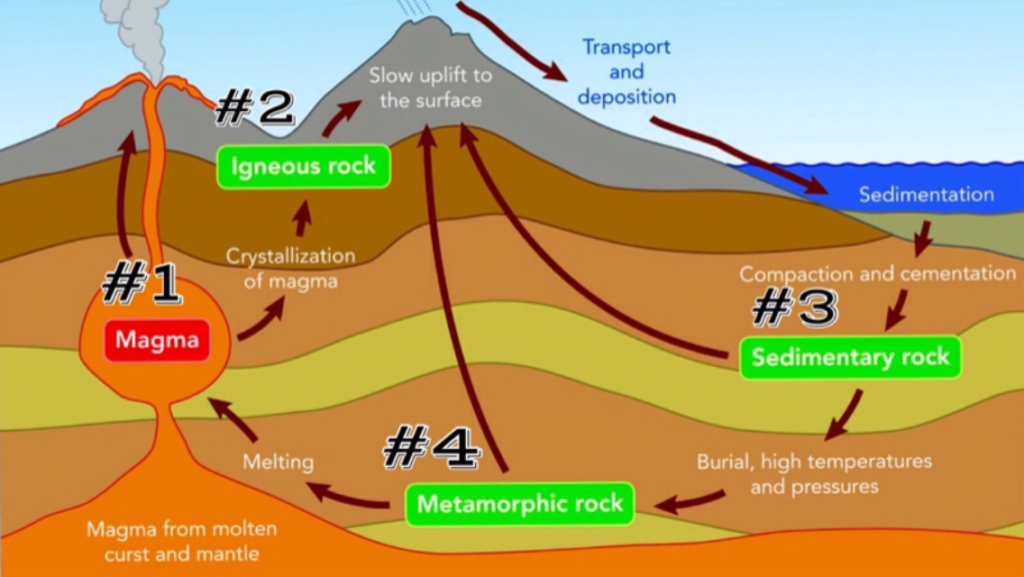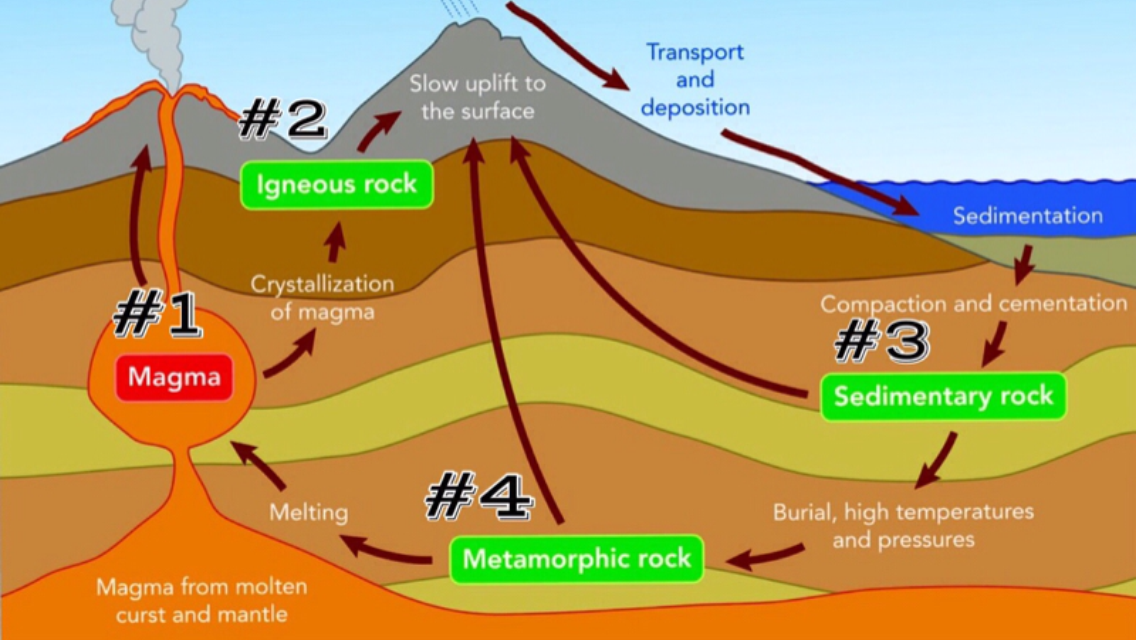Geology is the study of the earth in terms of its development as a planet since its origin. It consists of air (atmosphere), water (hydrosphere), and land (lithosphere).
The earth’s surface has been created, maintained, and destroyed by numerous physical, chemical, and geochemical processes. Collectively such processes are referred to as the geologic cycle.
A geologic cycle is a collective form of a group of sub-cycles i.e. Tectonic, rock, hydrologic, and geochemical sub-cycles.
Hydrologic cycle
The hydrologic cycle is the movement of water from the oceans to the atmosphere and back to the oceans, by way of evaporation, runoff in streams and rivers, and groundwater flow.
Geochemical cycle
Geochemistry is the study of the distribution and migration of elements in earth‘s processes. The geochemical cycle is the migratory path of elements during geologic change. This cycle involves the chemistry of the lithosphere, asthenosphere, hydrosphere, and biosphere.
Tectonic cycle:
Plate tectonics is the relative movement of the lithospheric plate with geological activities in the geologic past. The earth’s crust created and destroyed due to forces developed on the earth’s surface or below the earth’s surface and they produce the earth‘s external forms such as the ocean, basins, continents, and mountains as in a cycling manner i.e. from orogeny and progeny. Collectively such processes are called the tectonic cycle.
Rock Cycle:
The rocks are the aggregate of minerals. The rock cycle is a sequence of processes that produce the three rock families; igneous, sedimentary and metamorphic rocks.



[…] Geological Cycle […]